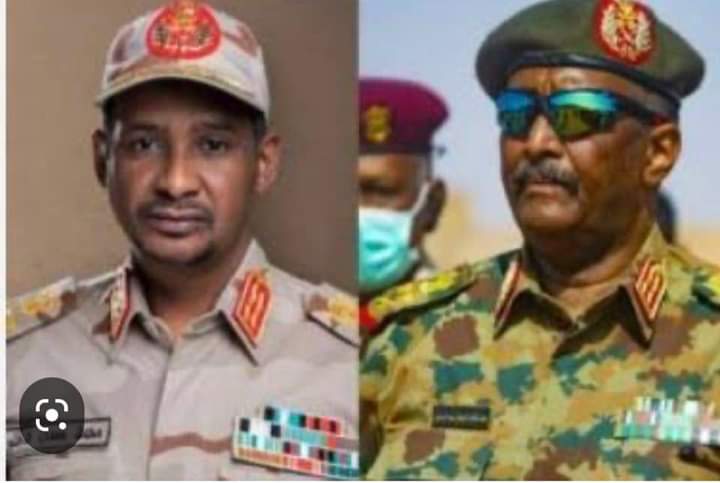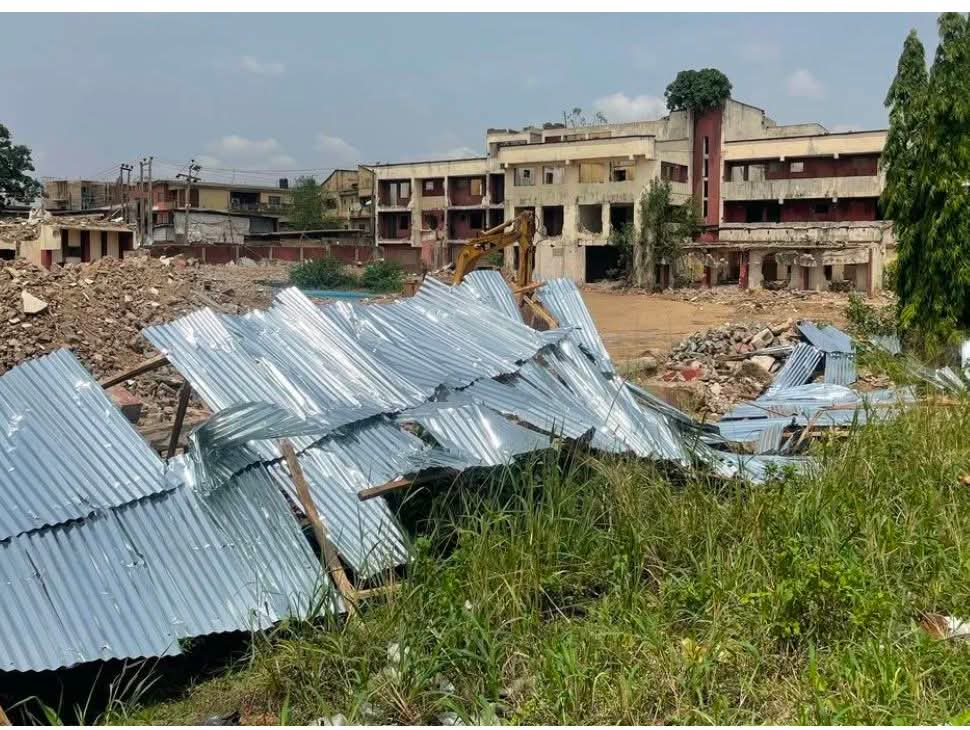“All countries have a sovereign right to decide which other countries to partner with, but these choices have consequences, of course.” — John Godfrey, US first Envoy to Sudan after 25 years.
Make no mistake about it, the ongoing war in Sudan is beyond two Generals fighting for control of the soul of the East African Country.
Under the agreement, Russia would lease the site for 25 years and could extend the deal for another 10 years, giving it access to the Red Sea’s warm waters and the international trade chokepoint of Bab el-Mandeb.
Alarmed at the turn of events in the country, the United States of America, which has no diplomatic relations with the Sahel country as at that time, quickly established one and John Godfrey became its envoy to Sudan. Part of his assignment was to talk to the Sudanese government about the implication of going ahead with the 2017 agreement with Russia.
And he made known the intention of the USA to the Sudanese authority from the word go. He was not comfortable with Russian influence in Sudan and warned against the rekindling of the 2017 agreement to establish a Russian navy base in Port Sudan.
Indeed, Godfrey told Al-Tayar, a Newspaper in Khartoum in February that “it is essential to say that international isolation around Russia and President (Vladimir) Putin is currently increasing due to the… invasion of Ukraine”. He also went ahead to add that “if the government of Sudan decides to proceed with the establishment of this facility, or to renegotiate it, it will be harmful to Sudan’s interest”.
But his admonition fell on deaf ears as a few days later, Mohamed Hamdan Dagalo, the deputy chairman of Sudan’s Sovereign Council, and one of the Generals routing for power in Sudan, made a one-week visit to Russia. Dagalo, also known as Hemedti, said at the time that there were no obstacles to establishing a Russian military base in his country if it would benefit the interests of Sudan, a remark which brought immediate condemnation from the US.
“We have 730km on the Red Sea. Suppose any country wanted to set up a military base, and we have with it common interests, and it does not threaten our national security, in that case, we have no problem dealing with Russia or others,” Hemedti stated.
Hemedti controls about 100,000 men of the Rapid Support Forces which are the preeminent paramilitary group in Sudan. During Sudan’s Darfur conflict in the early 2000s, he was the leader of Sudan’s notorious Janjaweed forces, implicated in human rights violations and atrocities. An international outcry saw Bashir formalize the group into paramilitary forces known as the Border Intelligence Units. In 2007, its troops became part of the country’s intelligence services and, in 2013, Bashir created the RSF, a paramilitary group overseen by him and led by Dagalo, (Hemedti). Dagalo turned against Bashir in 2019, but not before his forces opened fire on an anti-Bashir, pro-democracy sit-in in Khartoum, killing at least 118 people. He was later appointed deputy of the transitional Sovereign Council that ruled Sudan in partnership with civilian leadership. Hemedti has huge wealth derived from the export of gold from illegal mines and commands tens of thousands of battle-hardened veterans. He has long chafed at his position as official deputy on Sudan’s ruling council.
In no time, the Russians wormed their way into Dagalo’s heart through the Wanger Group, who provided training and sophisticated arms to his group. The Rapid Support Forces on the other hand, opened up the country’s gold mine sector to the Russians and both parties make millions of dollars in the mining of Sudan’s resources.
The other leg in the ongoing Sudanese crisis, and Sudan’s military leader, General Abdel Fattah al-Burhan is also believed to have been backed by Russia, before international pressure, particularly from the US, forced him to publicly disavow the presence of the Russian mercenary group Wagner, in Sudan. Burhan is essentially Sudan’s leader. At the time of Bashir’s toppling, Burhan was the army’s Inspector General. His career has run an almost parallel course to Dagalo’s. He also rose to prominence in the 2000’s for his role in the dark days of the Darfur conflict, where the two men are believed to have first come into contact. Al-Burhan and Dagalo both cemented their rise to power by currying favour with the Gulf powerhouses and Russia. They commanded separate battalions of Sudanese forces, who were sent to serve with the Saudi-led coalition forces in Yemen. Now, they find themselves locked in a power struggle with each general supported by foreign powers.
They have also disagreed on the direction the country should go. While al-Burhan has promised a return to civilian rule, Hemedti is against hurried handover to civil authorities and the other bone of contention is the plan to include the 100,000-strong RSF into the army, and who would then lead the new force.
But deep into the heart of the Sudanese crisis is the role both Russia and the USA are playing beneath the surface. They have both taken sides in the conflict and going by the word of John Godfrey, the consequences of the Sudanese leader’s romance with Russia is all out for all to see. As expected, the international community seems not interested in calling the two Generals to order, but in how to get their men and other foreign nationals out of the firing line.
As expected, reports from Khartoum in the last couple of days paint a devastating picture: people are trapped indoors, terrified, with dwindling supplies of food, water, medicines, and fuel, health services are near collapse and several hospitals are being used by armed groups. Across the country, there have been reports of armed clashes; people have fled their homes in the Blue Nile and North Kordofan States and across Darfur, with refugees and returnees having arrived in Chad, Egypt, and South Sudan. The power struggle is lighting a fuse that could make an already catastrophic humanitarian situation in the Sahel even worse, setting back development by decades.
Joyce Msuya, Assistant Secretary-General for Humanitarian Affairs and Deputy Emergency Relief Coordinator for the United Nations stressed that the humanitarian crisis is quickly turning into a catastrophe, with more than 460 people killed so far, more than 3,700 injured and more than 20 hospitals forced to close. In addition to numerous reports of sexual and gender-based violence, aid workers have been beaten and held at gunpoint as warehouses, offices, and vehicles have been attacked, looted, or seized.
As Sudan borders seven countries, all of which have either been involved in conflict or seen serious civil unrest over the past decade, it is a gateway to the Sahel, where insecurity and political instability are making an already catastrophic humanitarian situation even worse. Across the region, poverty and hunger are rampant, the climate emergency, the global cost of living crisis, and soaring levels of debt are taking a terrible toll, and in some places, humanitarian aid is all that is keeping famine at bay. The power struggle in Sudan is not only putting that country’s future at risk, but lighting a fuse that could detonate across borders, causing immense suffering for years.
Nigeria and other countries are in a race against time to get their nationals out of the country. Already, about 5,500 Nigerians living in the country have signaled their intention to leave and the Federal Government has commenced the process of getting them out of the country. Due to the nature of the conflict, sending aircraft to the country to evacuate our citizens has been ruled out as the airports are not safe and the road option to Egypt is now being coordinated by the committee set up for that purpose.
In all of this, the African Union seems helpless and unable to call the fighting Generals to order. The international community is not doing much other than getting its staff in Sudan out of harm’s way. The two Generals have vowed to fight to the last man standing, not minding the devastation that the country and its millions of citizens would suffer. Already, Chad, South Sudan, Saudi Arabia, and Egypt are experiencing an influx of refugees from Sudan.
Many are now without light, food, water, and medicine while women and children are now vulnerable in this needless war. With Russia and USA indirectly involved in the Sudan war, the level of devastation that would be recorded would definitely be on the high side as sophisticated war machines would be made available to the combatants. The level of destruction that would be witnessed and the human suffering that will come with it would be a catastrophe for an African country. Who will save Sudan from the proxy war taking place on its soil?
See you next week.
Addendum: We shall continue with our x-ray of the eight-year rule of President Muhammadu Buhari’s administration, which we started last week, in the coming week.
Share via:





